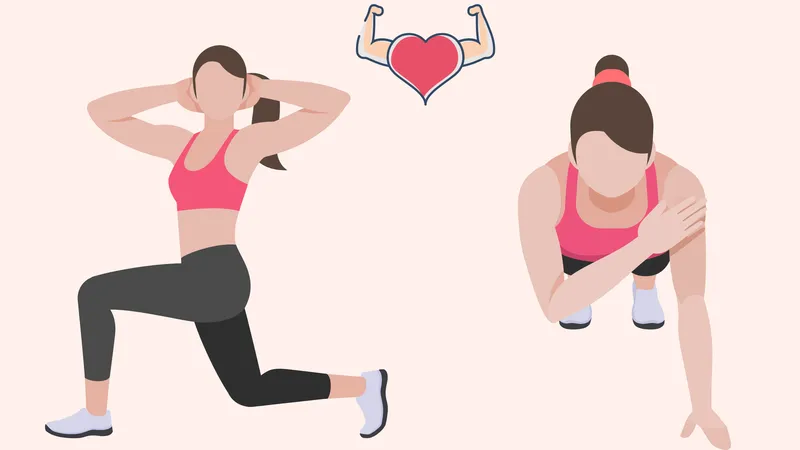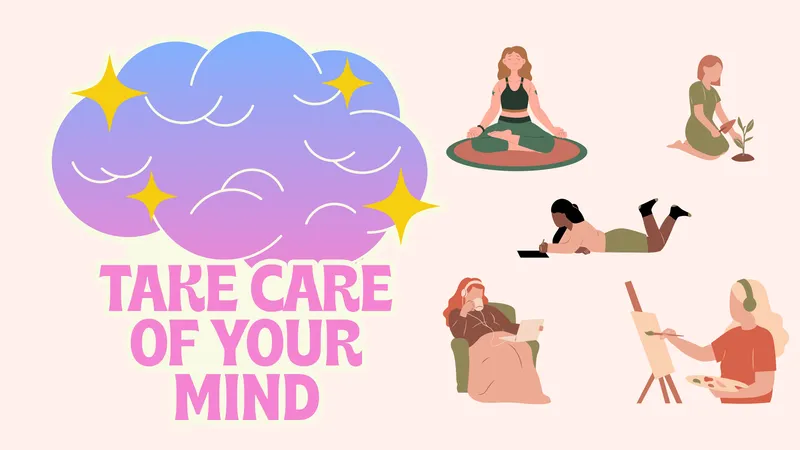How to practice self-care and build resilience for better mental health
In this article, we delve into the importance of self-care, explore strategies to build resilience, and provide tips to enhance overall mental health.
In today's fast-paced and demanding world, taking care of our mental health has become more important than ever.
The complexity of our lives necessitates a closer look at self-care and resilience as essential aspects of maintaining good mental well-being.
This article aims to delve into the importance of self-care, explore strategies to build resilience, and provide tips to enhance overall mental health.
Understanding self-care
Self-care is a holistic approach to nurturing our physical, emotional, and mental well-being. It involves making choices to prioritise activities and practices that promote self-renewal and rejuvenation. Self-care is not merely a selfish act, but a vital component of maintaining a balanced and fulfilling life. By tending to our own needs, we become better equipped to handle life's challenges and provide support to those around us, fostering a burst of resilience within ourselves.
Self-care strategies
Physical Health: Let us start by focusing on our physical well-being. Engaging in regular exercise, consuming a nutritious diet, and prioritising sleep lay the foundation for good mental health. It is through caring for our bodies that we build a strong base for resilience.

Emotional Well-being: It is important to acknowledge and express our emotions. Engaging in activities that bring us joy and dedicating time to develop hobbies or interests that nurture our soul contribute to emotional well-being. Connecting with loved ones and seeking support when needed adds bursts of positivity to our lives.
Mental Stimulation: Our minds thrive when we engage in activities that stimulate them. Reading, solving puzzles, or learning new skills are ways to keep our cognitive well-being intact. Curiosity becomes the fuel that adds bursts of intellectual excitement to our existence.
Mindfulness and Relaxation: The practice of mindfulness techniques such as meditation or deep breathing exercises allows us to cultivate a sense of calm and reduces stress. Incorporating relaxation techniques into our daily routines adds bursts of tranquility to our lives, providing a counterbalance to the chaos.

Building resilience
Resilience is the ability to bounce back from adversity, adapt to change, and thrive in the face of challenges. Cultivating resilience becomes crucial for better mental health, adding strength and flexibility.
Strategies to build resilience
Positive Mindset: Fostering a positive outlook on life entails focusing on gratitude and practicing self-compassion. By training our minds to see setbacks as opportunities for growth and learning, we infuse our lives with bursts of optimism and resilience.
Cultivate Supportive Relationships: Surrounding ourselves with a network of supportive and positive individuals becomes paramount. Seeking out people who uplift and inspire us adds bursts of encouragement and strength to our journey. Social connections become the threads that weave resilience into the fabric of our lives.

Develop Problem-Solving Skills: Enhancing our problem-solving abilities enables us to tackle challenges effectively. Breaking down problems into smaller, manageable steps and approaching them systematically adds bursts of analytical prowess and determination to our repertoire.
Practice Flexibility and Adaptability: Flexibility allows us to adjust our mindset and approach when faced with unexpected circumstances, enhancing our resilience.
Practical tips for better mental health
Now that we have explored the significance of self-care and resilience, let's dive into some practical tips to improve overall mental health and well-being, experiencing bursts of wisdom and guidance.
Prioritise "Me Time": Make self-care a non-negotiable part of your routine. Set aside dedicated time each day to engage in activities that bring you joy and relaxation. Embrace the bursts of serenity that come from reading a book, taking a walk in nature, or indulging in a hobby.
Maintain a Balanced Lifestyle: Strive for balance in all areas of your life. Allocate time for work, leisure, relationships, and personal growth. Avoid overcommitting and learn to say no when necessary, adding bursts of equilibrium to your daily existence.
Practice Mindfulness: Incorporate mindfulness into your daily life. Take a few moments each day to focus on your breath, observe your thoughts without judgment, and cultivate present-moment awareness. The bursts of mindfulness reduce stress and promote overall well-being.

Seek Support: Don't hesitate to reach out for support when needed. Talk to a trusted friend, or family member, or seek professional help if required. Remember, seeking help is a sign of strength, not weakness, and it brings bursts of comfort and guidance into your life.
Engage in Regular Exercise: Physical activity not only improves physical health but also has a positive impact on mental well-being. Incorporate exercise into your routine to release endorphins, reduce stress, and boost your mood, experiencing bursts of vitality and rejuvenation.
Practice Gratitude: Cultivate an attitude of gratitude by focusing on the positives in your life. Start a gratitude journal or take a few moments each day to reflect on the things you are grateful for. Gratitude shifts your perspective and promotes a positive mindset, adding bursts of appreciation and contentment to your days.
Set Realistic Goals: Set achievable goals that align with your values and aspirations. Break them down into smaller, manageable steps and celebrate your progress along the way. Accomplishing goals boosts self-confidence and enhances motivation, infusing your life with bursts of achievement and fulfillment.








